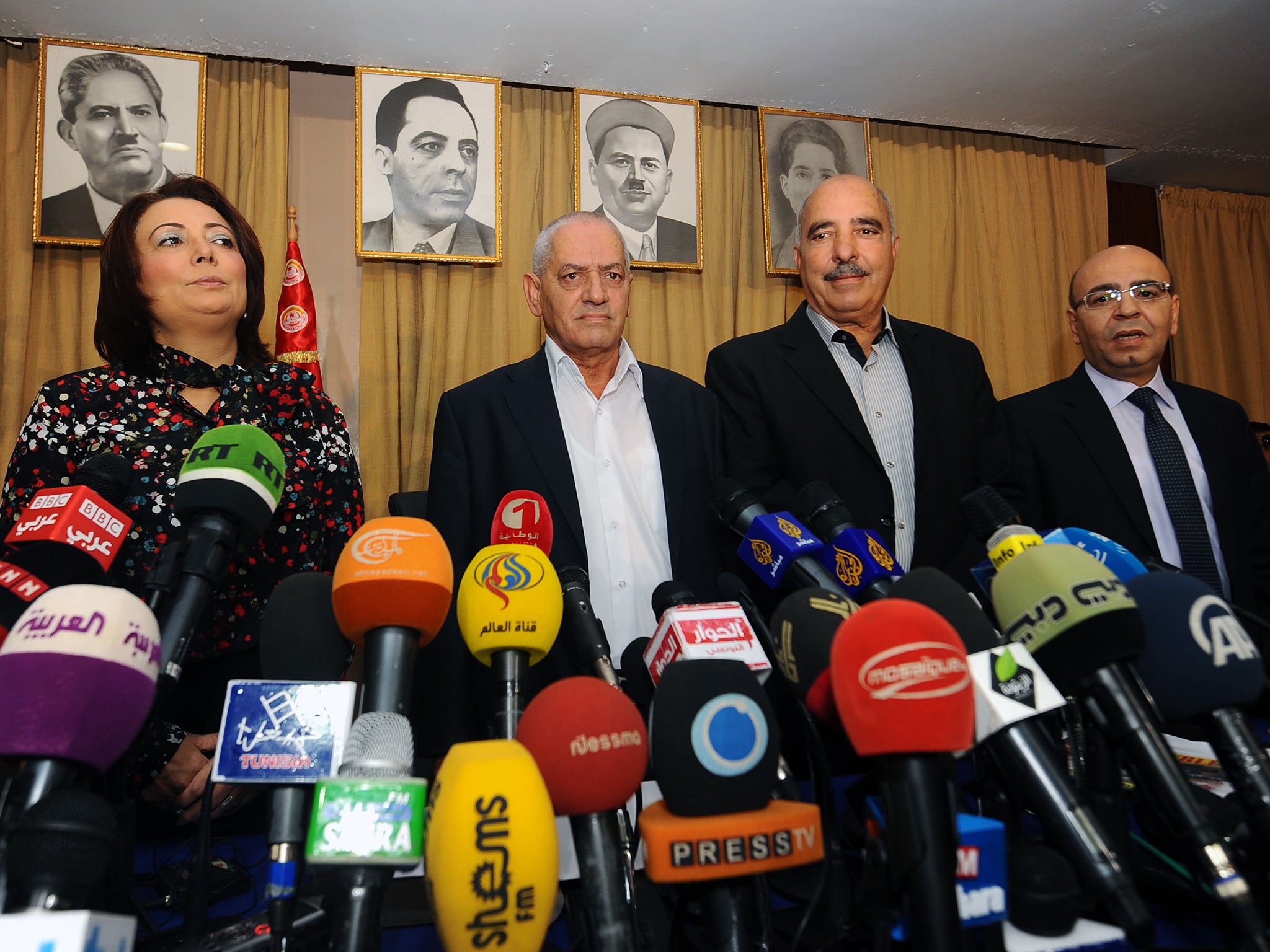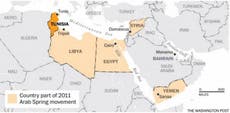Why Tunisians like me are cynical about our country's Nobel Peace Prize winners
Here lies the Tunisian contradiction: we are the country that produced the largest number of foreign jihadists in Syria, while still being the most successful democratic transition in the Middle East

At 11am today, the news emerged. The Nobel committee had decided to attribute this year’s peace prize to a surprise winner, the Tunisian National Dialogue Quartet for its “decisive contribution” to democracy and peace building.
Comprising four organizations - the Tunisian General Labor Union, the Tunisian Confederation of Industry, Trade and Handicrafts, the Tunisian Human Rights League, and the Tunisian Order of Lawyers - the Quartet originated after the political deadlock and crisis of 2013, and lead the way on the creation of a new Constitution and the holding of elections October 2014.
The award comes at a time when Tunisia’s democracy is still in crisis following the deadly terrorist attacks of July in which 38 people, mostly tourists, died in the beach-town of Sousse. A state of emergency, raised after the attacks, was lifted last week but the security situation remains extremely fragile; within the country, disillusioned young people continue to join terrorist networks, and the Libyan conflict spills over the borders.
Here lies the Tunisian contradiction: we are the country that produced the largest number of foreign jihadists in Syria, while still being the most successful democratic transition in the Middle East.
What is most striking today is the gap between how the world views Tunisia - as the last remaining hope of democracy after the Arab Spring, after which countries like Syria, Yemen or Libya have descended into conflict – and the struggles we face at home.
Tunisians living through a period of economic recession might be more cynical of the peace prize. Yet the Nobel Peace Prize committee even mentioned “the Jasmine Revolution” in making the award, an expression dismissed by locals because it is the same name used by the former dictator Ben Ali for his coup of 1987.
Tunisia has become a symbol of progressive rights, especially in regards to women. That is a position that benefits the country’s relations with the West, but it also limits important conversations on the need for more substantive social transformations, rather than just formal changes through the law.
Maybe we Tunisians are too used to our day-to day-reality – the declarations of politicians, the economic losses and the constant security threats - to remember how much has already been achieved. The state of democracy, of free elections and freedom of the press, has travelled a long road since 2011 but certain structures of the state, such as police brutality, persist and undermine citizens’ rights.
Almost five years after the first protests in the town of Sidi Bouzid, the country’s leaders seem to have forgotten the social and economic demands for employment that ignited the Arab Spring. Instead, the demands are now taken over by power battles between politicians. The disconnect between the political sphere and social and economic life of the Tunisian people are a reminder of how much work there is still to do.
We can only hope that the Nobel peace prize will not become a token for the political class to rest on a partial success, but a reminder of the urgency with which need to have an open conversation about the need for social justice, reform of the state, and economic development.


Join our commenting forum
Join thought-provoking conversations, follow other Independent readers and see their replies